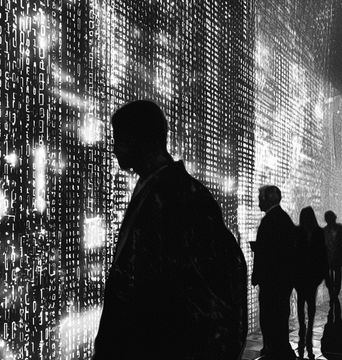OPENAI & GOOGLE URGE US GOV: ALLOW AI TRAINING ON COPYRIGHTED MATERIAL OR FORFEIT AI DOMINANCE TO CHINA!

In the lightning-fast world of AI, where developments are unfolding at an unprecedented pace, the giants of AI, OpenAI and Google, have issued an appeal to the US government for their AI models to be permitted to train on copyrighted material. A transformative development, they argue, is essential to maintain the United States' pre-eminent position in the AI landscape, placing the issue firmly within the context of national security. This move reignites the dialogue surrounding the intersection of intellectual property rights, technological developments, and national security.
OpenAI postulates that without the ability to access copyrighted content, the US could potentially cede its dominant position in AI to China, whose tech industry has been reporting progressive leaps in similar technological fronts. This, they argue, would be a detrimental hit to not just the American AI industry, but also to the country's influence and strength in the global technological and economic arena. Google also supports this stance, asserting that copyright, privacy, and patent policies often act as hurdles to gaining the necessary access to data for training state-of-the-art models.
Alongside, Anthropic, another rising star in the AI industry, has invited government intervention to evaluate AI model’s national security threats and augment export controls on AI chips. Their proposal highlights the importance of a holistic examination of AI development, and urges to strengthen regulatory measures on how and where AI technologies are disseminated.
These appeals for blanket access to copyrighted material, however, have been met with controversy and criticism. Top AI firms, such as OpenAI, Apple, Anthropic, and Nvidia, have all been accused of using copyrighted content to train their AI models.
Such incidents highlight the difficult balance that needs to be struck between protecting the interests of copyright holders and facilitating AI innovation. It is an intricate dilemma in which the need for open access to a rich trove of data for AI training contends against the protection of intellectual property rights.
Moreover, this issue holds profound implications for the future development of AI, marking a potential shift in how AI models are trained. Perhaps, it could even lead to the revising of copyright laws, with the potential for an allowance for fair use as it pertains to AI.
While the dialogue surrounding this development is ongoing, the cumulative impact could be far-reaching, possibly reshaping the entire landscape of AI advancement and legislation, while also altering the balance of the world's AI dominance. As we grapple with these advancements, one thing is clear: the future of AI will be significantly influenced by the decisions made today in these arenas. The coming months and years will, no doubt, reveal how this urgent appeal from the AI industry will play out on the global stage.